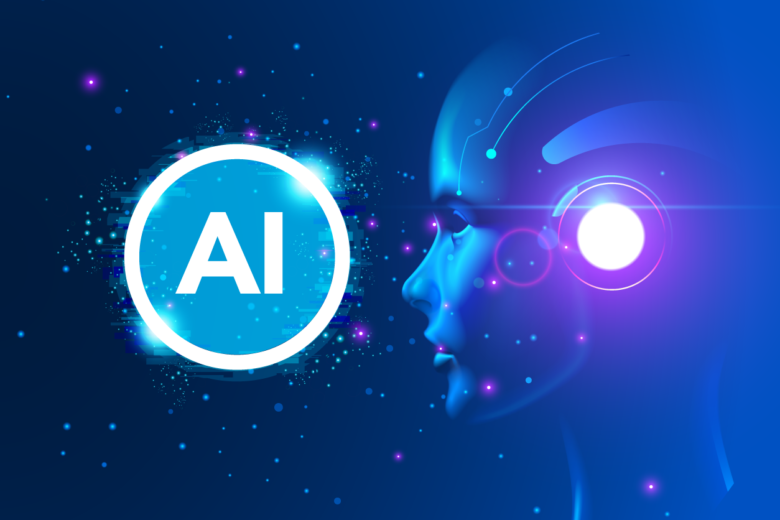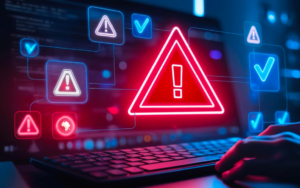Artificial intelligence (AI) has become an essential part of everyday life. It helps us with tasks like unlocking our phones with facial recognition and receiving personalized recommendations for movies, music, and products. Businesses use AI for data analysis, customer assistance, fraud detection, and even autonomous car driving. As AI systems become more sophisticated and powerful, people increasingly rely on them to make decisions that affect their health, safety, security, and finances. But this growing reliance also raises an important question: Can AI fail? And if so, what risks could we have failed to anticipate?
Understand what AI really is
AI aims to mimic certain aspects of human intelligence using algorithms and data. It can recognize trends, make decisions, and even learn from mistakes. But AI doesn’t have the intuition, common sense, or emotional judgment that humans do. All that matters is the training it receives and the rules it’s programmed to follow. This makes AI incredibly powerful, but it also has many limitations. If the work environment and environment are difficult to understand, the chances of making mistakes are greater.
Data Quality Can Lead to AI Mistakes
Data is how AI programs learn. If the data is missing, incorrect, biased, or outdated, the machine will learn the same mistakes. For example, if an AI tool used for recruitment is trained on data from a company that has historically favored certain groups of people, it can learn and repeat that bias. In other words, AI can fail, not because it doesn’t do well, but because it learns from its mistakes. This failure can lead to unfair treatment, discrimination, or poor decision-making.
Problems and Misconceptions with Algorithms
AI relies on algorithms, mathematical models that follow instructions. These models can work well when the situation is certain, but they can fail when it changes or when they encounter situations they weren’t trained for. For example, an AI system that is very good at recognizing cats in photos may not be able to do anything if it sees cartoon cats or blurry photos of them. What happens when AI cannot generalize or change shows how vulnerable these systems are. AI does not think like humans; it can only perform mathematical operations based on patterns.
AI in Critical Systems and the Danger of Overtrust
As AI becomes more widely used, the chances of it failing in key areas such as healthcare, transportation, law enforcement, and financial markets increase. If an AI in a hospital makes the wrong diagnosis or gives a patient the wrong medication, it could have fatal consequences. If the AI in a self-driving car misidentifies a traffic sign, it could cause a car accident. People tend to over-rely on AI systems, assuming that it is technology and therefore must be correct. This trust can mean that it takes longer for humans to intervene when AI fails, making the error worse.
Security Vulnerabilities and Exploits in AI
AI systems can also fail when hackers or other malicious actors attempt to attack them. Such attacks can provide false information (also known as “adversarial input”) to the system, leading it to make erroneous decisions. For example, a small sticker on a stop sign can trick an AI into thinking it is a speed limit sign. Such attacks demonstrate how easy it is to trick, control, or abuse an AI system, often in ways that are difficult for humans to detect or understand until it is too late.
The Problem of Transparency and Black Box Models
Many AI models are similar to “black boxes” in that we are aware of the inputs and outputs, but we are unaware of the intermediate processes. This is one of the biggest risks that people overlook. Because the situation is unclear, it is difficult to figure out why AI fails or how to fix it. This lack of clarity can lead to serious legal and ethical problems when accountability is crucial, such as when someone is convicted of a crime or is approved for a loan. When AI systems fail, it can be difficult to determine who is responsible.
Bias and Inequality in AI Outcomes
One of the worst potential consequences of AI is that it can exacerbate inequality. Because AI learns from past data, it often exhibits biases that exist in the real world. AI is likely to learn and repeat discriminatory trends in this data. Such errors can lead to inequities in credit scores, hiring processes, or policing. These mistakes are dangerous when they occur because they appear neutral or objective but in reality contribute to harmful stereotypes and systemic problems.
Conclusion
AI is a useful and powerful tool, but it can make mistakes. Its efficacy depends on the data it learns from, the clarity of its methods, and how we use and monitor it. When AI fails, the impact can be small or severe, but it is usually avoidable. Understanding the pitfalls of AI can make us more cautious in how we use it. We should not fear AI. Instead, we should understand its limitations and create systems that are fair, safe, and consistent with human values.
FAQs
1. Can AI make mistakes?
AI is susceptible to errors, particularly when trained on flawed data, exposed to false information, or utilized in unintended ways. In systems that are crucial to society, these mistakes can be small or grave.
2. What goes wrong with AI?
Some of the most common reasons include biased or incomplete data, incorrect algorithms, unexpected inputs, security risks, and over-reliance on systems without monitoring them.
3. Is AI always right and reliable?
No, AI is not always right, even if it excels at some things. Its reliability depends on its training, upkeep, and operating environment.
4. Can we trust AI to make important choices?
AI can help make important choices, but it is not safe to fully trust it without first ensuring its safety. It is important to use AI in combination with human reasoning, especially in high-stakes industries such as medicine, law, and finance.
5. How do you prevent AI from failing?
To prevent AI from failing, it is important to use accurate data, check for bias, ensure the system is transparent, and integrate human review. With regular testing and ethical review, AI systems can work as planned.



